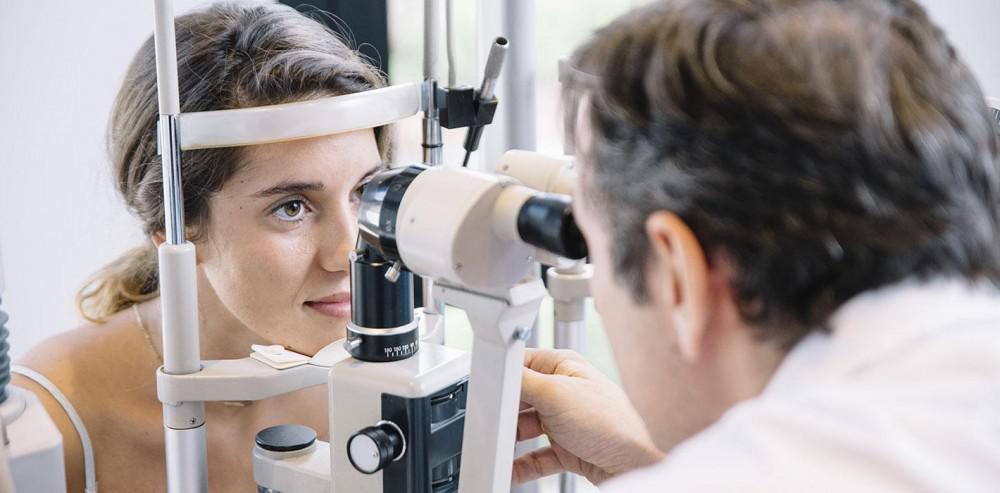Your thyroid gland, shaped like a butterfly and located in your neck near your collarbone, is one of your body’s endocrine glands, producing hormones that control many activities in your body. Your thyroid hormones regulate your metabolism, including how fast you burn calories and how rapidly your heart beats.
Problems with your thyroid gland can affect your weight, your mood, and more, including your eyes. The world-renowned oculoplastic surgeon Raymond Douglas, MD, PhD diagnoses and treats cases of thyroid eye disease from his offices in Beverly Hills, CA, Long Beach, CA, and Las Vegas, NV.
Here’s what Dr. Douglas wants you to understand about the connection between your thyroid gland and your eye health.
Thyroid Problems and Your Eyes
If you have an overactive thyroid, also known as hyperthyroidism, your eyes could suffer from negative effects. The tissues around your eyes, including the fat behind your eyeballs, your eye muscles, and neighboring facial tissues, can all be negatively affected by thyroid eye disease.
How Overactive Thyroids Can Affect Your Eyes
An overactive thyroid can lead you to develop thyroid eye disease, a condition sometimes but not always associated with Graves’ eye disease. Graves’ eye disease is an autoimmune condition that can cause protruding eyeballs, eye discomfort, and impaired vision.
Antibodies Attack Receptors in Your Thyroid
Your antibodies mistakenly attack the receptors in your thyroid cells. These receptors can also be found on the surface of the cells behind your eyeballs. Under an autoimmune attack, your tissues become inflamed and increase in size. As many as 50% of people with Graves’ disease will develop eye-related symptoms. Graves’ disease can also more rarely affect your skin.
For some patients, treatment for Graves’ disease can lead to hypothyroidism, a condition when your thyroid is under-active and doesn’t produce the amount of thyroid hormones your body needs. This condition is known as Graves’ ophthalmopathy, which can also cause eye discomfort and vision changes.
Early Warning Signs of TED and When to See a Specialist
Don’t wait to recognize the early signs of thyroid eye disease (TED). Symptoms start subtly:
- Dry, gritty, or irritated eyes
- Swelling or puffiness around the eyes
- Light sensitivity
- Redness or inflammation
- A feeling of pressure behind the eyes
As TED progresses, you’ll see bulging eyes (proptosis), double vision, or the inability to close your eyelids all the way. If you experience any of these symptoms, see Dr. Douglas early and he can prevent complications from getting worse.
How Does Treatment for Hyperthyroidism Affect Long-Term Eye Health?
Treatment for hyperthyroidism with medication, radioactive iodine or surgery can affect your eye health. Some treatments, especially radioactive iodine, can temporarily make TED symptoms worse. If treatment leads to hypothyroidism, it can cause eye dryness, swelling and discomfort. Patients should work closely with their endocrinologist and ophthalmologist to monitor eye health and adjust treatment plans accordingly.
Lifestyle Changes to Manage Thyroid-Related Eye Symptoms
Lifestyle changes can support eye health and reduce TED symptoms:
- Quit Smoking: Smoking is a major risk factor for TED and can worsen inflammation.
- Healthy Diet: A diet rich in antioxidants, selenium and omega-3 fatty acids can help manage inflammation.
- Wear Sunglasses: Protects sensitive eyes from UV exposure and reduces irritation.
- Lubricating Eye Drops: Helps with dryness and discomfort.
- Manage Stress: High stress levels can exacerbate autoimmune conditions including thyroid disorders.
Other Treatment Options
Tepezza® is a new and effective treatment for TED, but other options are available depending on the severity of symptoms and individual needs. These include:
- Corticosteroids: For mild to moderate inflammation.
- Radiation Therapy: Targeted therapy for swelling and pressure behind the eyes.
- Surgical Interventions: Orbital decompression surgery, eyelid surgery or strabismus surgery may be needed in severe cases to restore function and appearance.
Lubricating and Anti-Inflammatory Eye Drops: For dryness and irritation.
Proactive Tips for Maintaining Thyroid and Eye Health
Take proactive steps to support thyroid health and minimize TED:
- Regular Thyroid Function Testing: Stay on top of medical check-ups to monitor thyroid hormone levels.
- Stay Hydrated: Proper hydration reduces eye dryness.
- Limit Caffeine and Alcohol: Dehydrates and worsens eye symptoms.
- Good Sleep Hygiene: Elevate your head while sleeping to reduce puffiness and swelling around the eyes.
Treating Your TED
While the active phase of thyroid eye disease only progresses for about 6-18 months, visible effects and vision-related issues remain, and you may need treatment to restore your appearance and eye health.
Dr. Douglas has extensive clinical experience at the cutting edge of treatment for thyroid eye disease. He directs the Orbital and Thyroid Eye Disease Program, and has pioneered the Tepezza® treatment, FDA approved in 2020. With Dr. Douglas’ help, you can take control of thyroid problems that affect your eyes.
Our team of experts works with you to develop your custom treatment plan, including both surgical and non-surgical treatment options.
Contact TED Expert Dr. Raymond Douglas Today
To learn more about the connection between your thyroid health and your eyes, and to find out more about how Dr. Douglas can help you with symptoms like bulging eyes, blurred vision, and puffiness around the eyes, get in touch today.
Schedule your appointment with Dr. Douglas over the phone, or book with our convenient online tool now.



